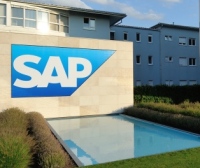SAP on African expansion trail as it lands multimillion Dangote deal

SAP recently sealed a multimillion euro contract with West Africa's largest conglomerate Dangote — its largest deal yet in Nigeria.

The software vendor has not disclosed the value of the deal, but described it as one of the most significant it has concluded in Africa to date.
To be phased in over three years, it is the first contract that SAP has signed with a Nigerian company that supports the client's operations outside Nigeria. The deal highlights a growing market in Africa for software vendors as the continent's large businesses and governments start to invest in modern IT infrastructure.
SAP is one of the companies that is eager to cash in on the bonanza. SAP co-CEO Bill McDermott earlier this year told South African news site TechCentral that he expects SAP's growth in key African countries to hit at least 50 percent a year for the foreseeable future — a conservative projection, according to SAP.
Dangote Group – founded by self-made Nigerian billionaire Aliko Dangote, number 76 on the Forbes list of the world's wealthiest people for 2012 — is a diverse industrial group with interests ranging from steel, cement and milling to sugar, real estate and telecoms. The empire generated revenues of more than $2.6bn in 2011 and includes four companies that are listed on the Nigerian stock exchange.
The group — which already operates in 14 African countries — is on a $4bn expansion drive across the continent. It is just one of the many African enterprises under pressure to modernise systems and business processes to become more globally competitive as rivals from other countries enter their traditional markets and they respond by expanding into new markets themselves.
The deal was signed between SAP and Dangote Industries Limited, the holding company for the entire group. Dangote plans to roll out the SAP platform across all of its businesses throughout Africa.
Reaping the rewards
SAP is reaping the rewards of the investment it is making in the Nigerian market by signing a deal with the first Nigerian company that is expanding into the rest of the world, says Mike Okwechime, account executive for large enterprises in SAP West Africa.
"The rest of the continent is rather immature from an enterprise business application perspective" - Frederik Malherbe, SAP
The SAP Business Suite will enable Dangote to move from a manual system to one that is more integrated, automated and provides transparency into its finances. In addition, SAP Business Suite will also give Dangote key management insight across the group.
SAP is the dominant enterprise software vendor in South Africa and its software is near-ubiquitous among the country's mid-sized and large financial service providers, miners, manufacturers, utilities, municipalities and public sector agencies. But "the rest of the continent is rather immature from an enterprise business application perspective", says Frederik Malherbe, general manager for industry solutions at SAP Africa.
For example, many of Africa's larger banks have put core banking systems in place, but still run fragmented legacy financial, procurement and human resources systems. "For us, this low level of maturity translates into huge potential opportunities for core enterprise systems," Malherbe says.
Upsurge in enterprise software deals
The drive across Africa to improve transparency and governance is one reason for an upsurge in enterprise software deals in many parts of the continent, says Malherbe. Good governance, underpinned by sound enterprise systems, is a requirement for donor funding for African governments and other aid beneficiaries.
Malherbe says that a lack of broadband infrastructure and a skills shortage across Africa are among the major challenges enterprise applications vendors face in Africa. SAP and other vendors have to invest heavily in training to ensure a sufficient supply of implementation and support skills for the growing market, he adds.
But they are finding an increasingly receptive market for their products — and not just the basic software. Malherbe says products such as cloud services and the HANA real-time analytics platform are also starting to gain traction in Africa.
Telcos, utilities, banks and other companies that work with big data are interested in HANA to manage supply and demand in real time. One application of HANA that might be popular, for example, would be using the technology to understand electricity demand and supply in real time to better manage strain on pressurised power grids in Africa and reduce blackouts.